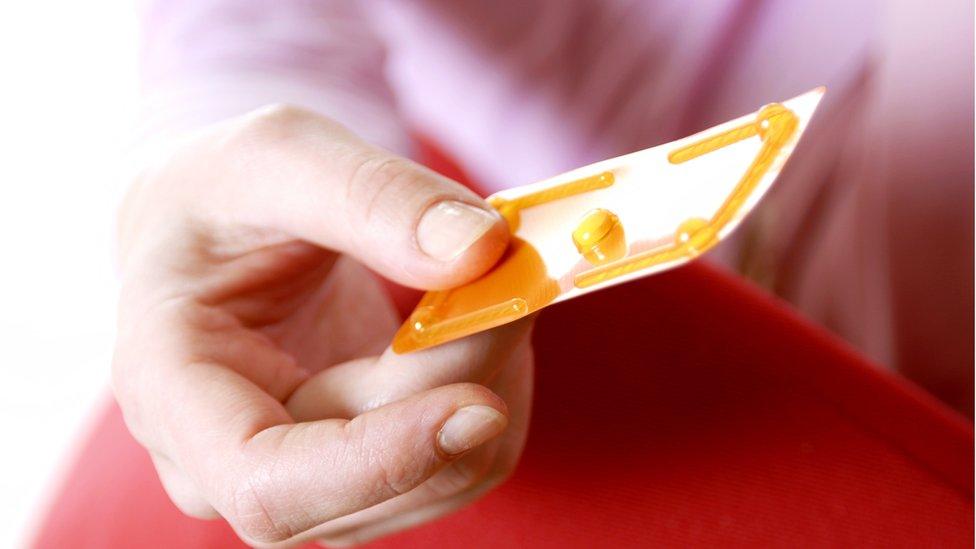St John's Wort 'stops emergency contraceptive pill working'
- Published

Women taking an emergency contraceptive pill containing levonorgestrel are being advised to check the ingredients of other medicines they are taking because they could stop the pill working.
The Medicines and Healthcare products Regulatory Agency said women taking some medicines, and remedies containing St John's Wort are affected.
These women should take a double dose of the contraceptive pill, it said.
An information sheet, external gives more advice.
Levonorgestrel is a hormonal type of emergency contraception which can be used within three days of unprotected sex to prevent unwanted pregnancies.
But scientists have discovered that certain ingredients in other medicines significantly reduce the effectiveness of the levonorgestrel pill.
The MHRA said it was important that women tell their doctor, nurse or pharmacist if they are currently taking medicines to treat any of the following conditions. or have used one in the last four weeks:
epilepsy
tuberculosis
HIV
fungal infections
or any herbal remedies containing St John's Wort (also called Hypericum perforatum)
It said women affected by the clash of ingredients in their medicines could either use another type of emergency contraception - such as a coil - or take a double dose of the emergency contraceptive pill containing levonorgestrel.
Pharmacists will give these women two packs which should be taken together at the same time.
The MHRA has produced a new information sheet advising women what they need to do to make sure they get effective emergency contraception.


What is St John's Wort?
St John's Wort is a plant with yellow flowers which is also used as a herbal remedy to relieve low mood and mild anxiety.
The flowering plant grows mainly in Europe, Asia and North America.
The name is thought to have come from its bright yellow flowers that bloom in time for St John's Day in June.
St John's Wort tablets, which are made from the plant, contain hypericin which is used to treat depression, and hyperforin which has antibiotic properties.

Dr Sarah Branch, deputy director of MHRA's Vigilance and Risk Management of Medicines Division, said: "Our new patient information sheet provides information on what types of medicines could interfere with how the emergency contraceptive works.
"It tells women what steps they need to take to ensure they receive the correct dose."
She added: "The earlier that emergency contraception is taken after unprotected intercourse, the better it works."